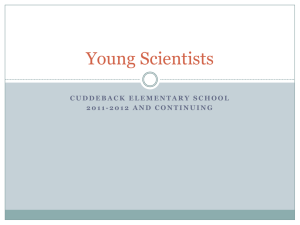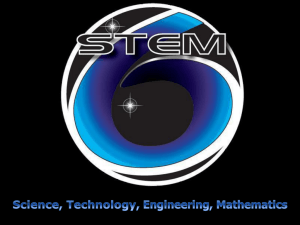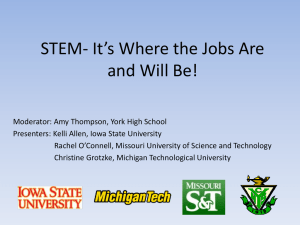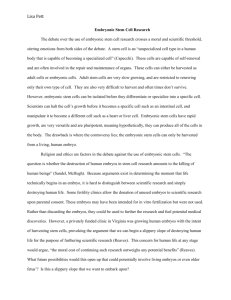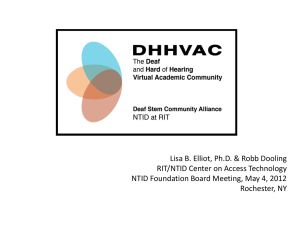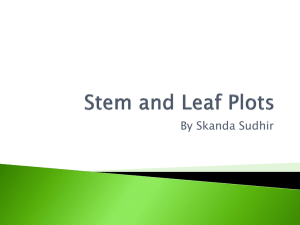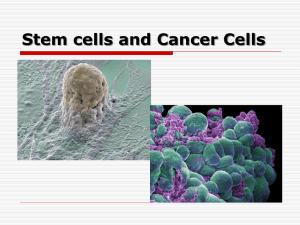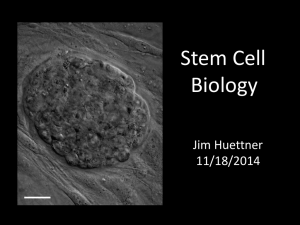Workshop- Presentation DSI_Stem Cells_2012
advertisement
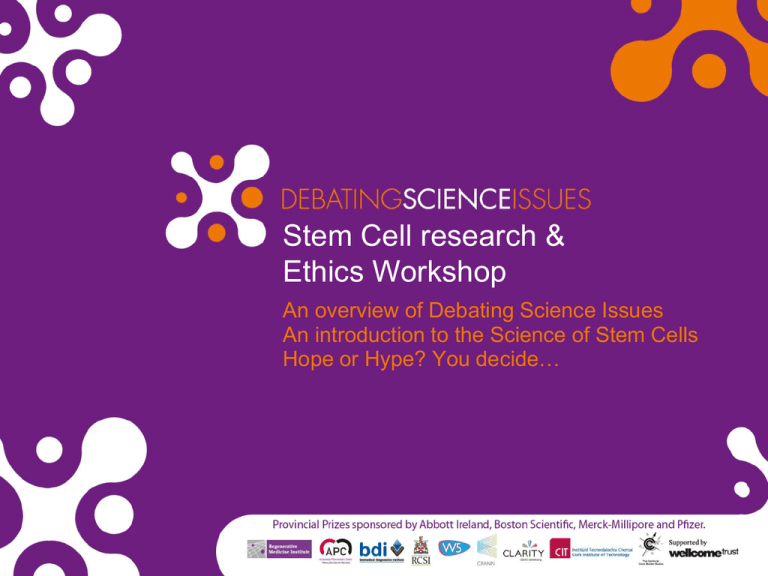
Stem Cell research & Ethics Workshop An overview of Debating Science Issues An introduction to the Science of Stem Cells Hope or Hype? You decide… What is Debating Science Issues? • • • • • Secondary School Programme Workshop Series & Debate competition Open to senior cycle students All debates are on biomedical science Sponsored by the Wellcome Trust Why Debating Science Issues? • Encourage you to take an active interest in biomedical science research and its ethical implications for all of society • Encourage you to consider the many diverse career options available in science • Debate topics include: stem cell research, GM foods, vaccinations, nanotechnology and health and self-testing kits Organization of DSI • Small groups take part in round table ethical workshops to prepare for first round of debates • Students work as a team under teacher supervision to prepare debates • 3-4 provincial heats (if successful!) before Semi-final and Final • Follow progress on the 2012 competition on Twitter @DebatingScience • Topic guides and reading lists available for download www.debatingscienceissues.com • Independent research-funding charity • Largest charity in the U.K. • Established in 1936 • Founder of company that developed AZT and Rubella vaccines • Interests range from science to history of medicine Science Foundation Ireland • REMEDI is one of ten centres of excellence in Ireland funded by the Science Foundation Ireland and dedicated to advancing Ireland’s smart economy through cutting-edge research and development. Forging innovative partnerships with industry, government and academia, the centres add value to Ireland through job creation, inward investment and international excellence in science, engineering and technology. Stem Cell scienceWhat are stem cells? • Unspecialised cells lacking any tissuespecific structure • Can give rise to specialised cells through the process of differentiation Why are stem cells unique? stem cell SELF-RENEWAL (copying) stem cell DIFFERENTIATION (specializing) specialized cell e.g. muscle cell, nerve cell Where are stem cells found? • Adult stem cells (post-birth) Umbilical cord blood Brain Olfactory (nasal passages) tissue Bone marrow Adipose (fat) tissue Intestinal lining Skin Surface of the eye Muscles Other sources are being discovered…. • Embryonic stem cells (pre-birth) Sources of embryonic stem cells • Spare or surplus embryos from in vitro fertilisation (IVF) • Embryos created for scientific research using donated eggs and sperm • Embryos created for scientific research using therapeutic cloning Induced pluripotent stem cells (iPS cells) ‘genetic reprogramming’ = add certain genes to the cell adult cell induced pluripotent stem (iPS) cells behave like embryonic stem cells differentiation culture iPS cells in the lab all possible types of specialized cells Advantage: no need for embryos! THE DEBATE -Currently there is no international consensus on embryo research or therapeutic cloning. -European nations vary in their legislation. -In some countries, the debate over whether we allow embryonic stem cell research is in its infancy. -This requires mutual respect for opposing positions and continued dialogue. -We need a proper understanding of the scientific facts about development of the embryo and what is involved in embryonic stem cell research. -We must think through our ethical principles and their implications. Thank You


